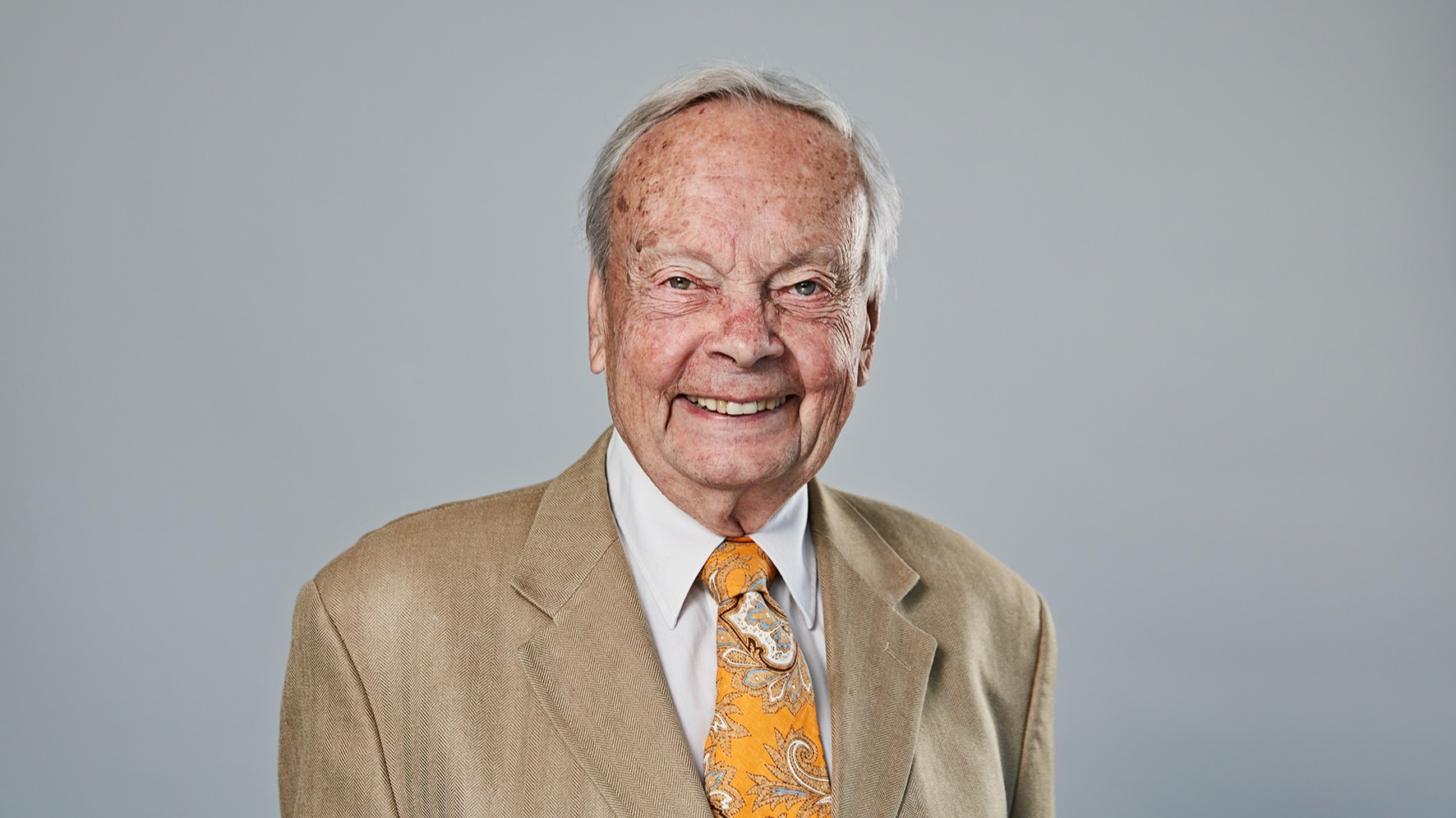
In Memoriam: I. William Zartman
In Memoriam

In Memoriam: I. William Zartman
The Intellectual Engine and Guiding Spirit of PIN
The world of international negotiation and conflict resolution has lost a defining voice and a cherished mentor. It is with profound sadness that the Processes of International Negotiation (PIN) Program marks the passing of Professor I. William (Bill) Zartman, Jacob Blaustein Distinguished Professor Emeritus of International Organization and Conflict Resolution at the Johns Hopkins School of Advanced International Studies (SAIS). As a founding member of PIN, Bill was, from its inception, our most active and prolific contributor—the intellectual engine and guiding spirit of our scholarly community.
For decades, Bill’s work fundamentally shaped our understanding of how peace is made. His foundational concepts, particularly that of a conflict's "ripeness" for resolution, are now cornerstones of the field, essential to theory and practice alike. It was within PIN, however, that his unique genius for collaborative inquiry shone brightest. Bill was more than the intellectual brainpower of the group; he was its architect of ideas, a driving force who could synthesize sprawling discussions into sharp, coherent frameworks. He spearheaded a remarkable series of projects that united diverse scholarly perspectives, culminating in edited volumes that have guided generations of students, scholars, and practitioners.
His gift was not only in his own prodigious scholarship but in his unmatched ability to weave together the work of others, charting an intellectual journey for the entire field. This journey began by establishing the conceptual bedrock of the discipline. In International Negotiation (1999), co-edited with Peter Berton and Hiroshi Kimura, he guided PIN’s foundational inquiry into the core components of peacemaking, deconstructing the roles of Actors, Structure/Process, and Values. His intellectual curiosity also led him to explore the intersection of rational choice and diplomacy in Diplomacy Games (2007) with Rudolf Avenhaus. The breadth of his vision was captured in the monumental SAGE Handbook of Conflict Resolution (2008), a project with Jacob Bercovitch and Victor A. Kremenyuk that synthesized decades of knowledge, and in his own edited volume, How Negotiations End (2019), which zeroed in on the critical, yet often overlooked, endgame.
From that solid base, Bill challenged the PIN community to dissect the most complex variables that can derail peace. With Jeffrey Z. Rubin, he steered a seminal exploration of power in Power and Negotiation (2000), moving the field beyond simplistic material calculations to understand power as a dynamic and perceptual element of negotiation. He courageously guided the group into one of the field’s most persistent ethical and practical dilemmas in Peace versus Justice (2005) with Victor A. Kremenyuk, examining the inherent tensions between the need for forward-looking reconciliation and backward-looking accountability. This theme proved so central to his thinking that he returned to it nearly two decades later, co-editing a special issue with Cecilia Albin on Negotiating Conflicting Notions of Justice (2023).
He continually nudged the PIN community’s focus beyond the negotiation table itself, pioneering a holistic view of the entire lifecycle of a conflict. With his edited volume Preventive Negotiation (2000) and his authored book Preventing Deadly Conflict (2015), he championed the study of proactive diplomacy to avert violence before it begins. He explored the perilous dynamics of ongoing crises in Escalation and Negotiation in International Conflicts (2005) with Guy Olivier Faure, and with Bertram I. Spector, he directed a critical focus toward the often-fragile implementation phase in Getting It Done: Post-Agreement Negotiations (2003). This lifecycle approach fundamentally broadened the scope and relevance of negotiation studies.
Finally, Bill never shied away from the most intractable challenges of modern peacemaking. Working again with Guy Olivier Faure, he guided PIN’s research into the fraught terrain of political violence, producing the pathbreaking volumes Negotiating with Terrorists (2010) and Engaging Extremists (2011). He applied the PIN framework to the tumultuous upheaval of the Arab Spring in his 2015 edited volume and to the complexities of US foreign policy from a conflict management perspective in Global Power of Talk (2015) with Fen Osler Hampson. With his PIN colleagues, he confronted existential threats in volumes such as The Slippery Slope to Genocide (2011), with Mark Anstey and Paul W. Meerts, and Banning the Bang or the Bomb? (2014), with Mordechai Melamud and Paul W. Meerts. His forward-looking perspective, always seeking to equip the next generation, culminated in projects co-edited with Siniša Vuković, such as New Diplomacy for New Conflicts (2019) and Rethinking Conflict Resolution and Management (2023), as well as the most recent edited volume with Guy Olivier Faure on China's Negotiating Mindset and Strategies (2025).
I. William Zartman’s legacy is etched in the pages of these essential texts, but it is also alive in the global network of colleagues he inspired and in the countless students he taught with rigor and warmth. As a leader of PIN, Bill was not only making seminal contributions to negotiation scholarship but also provided unique mentorship and heartfelt support to other PIN members as they looked for career opportunities and research agendas to develop. He was a giant upon whose shoulders we all stand. His sharp intellect, boundless energy, and unwavering commitment to the idea that, together, we could know more, defined the very essence of PIN. He will be deeply missed, but his intellectual fire will continue to light our way.
